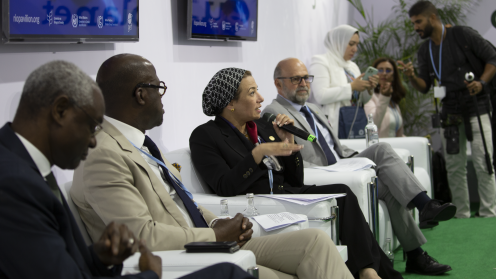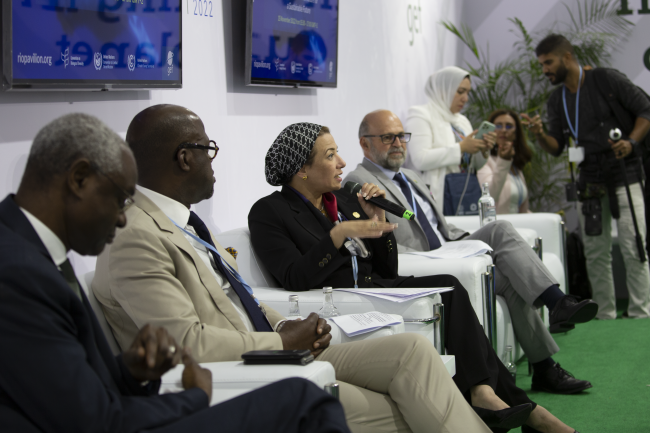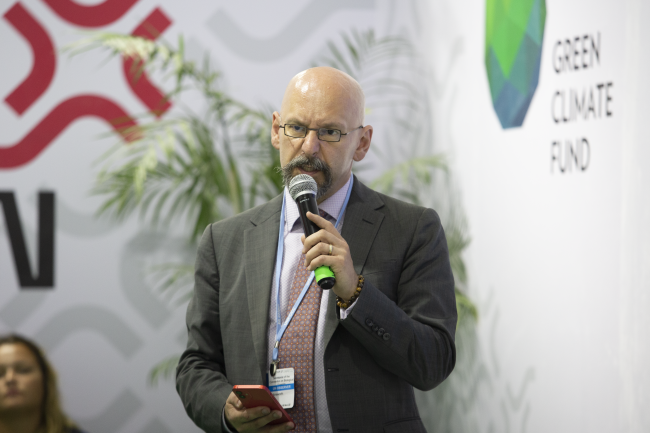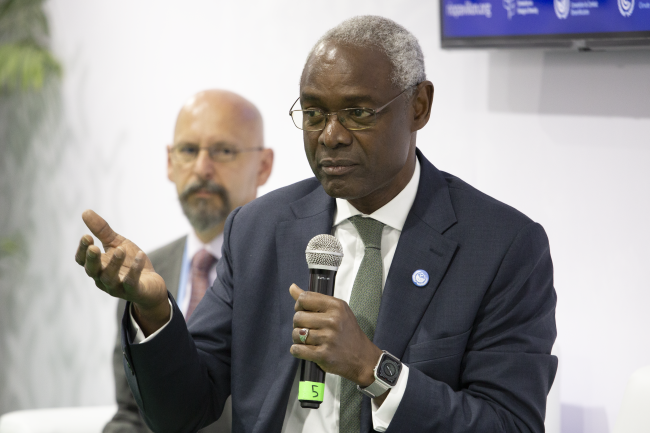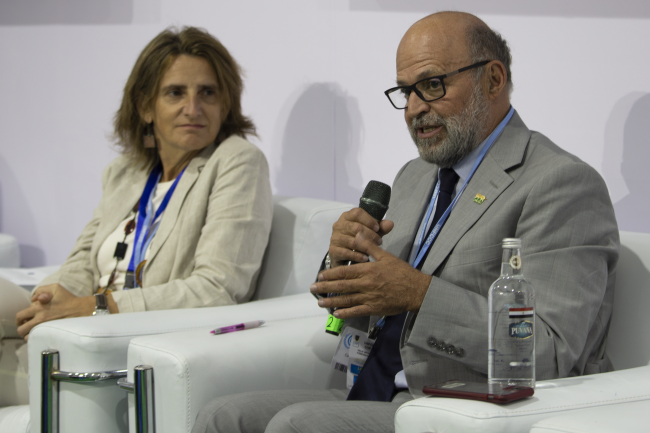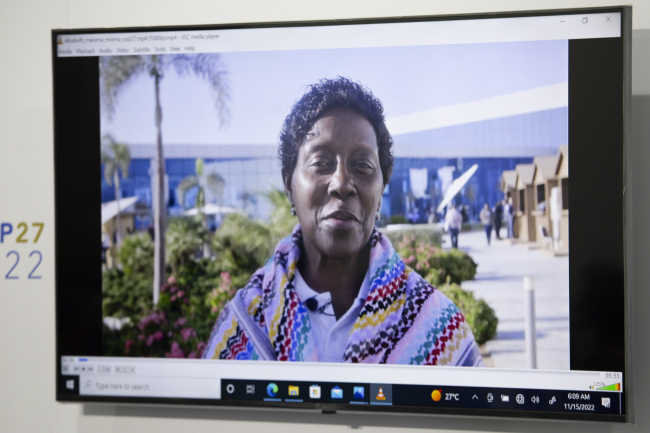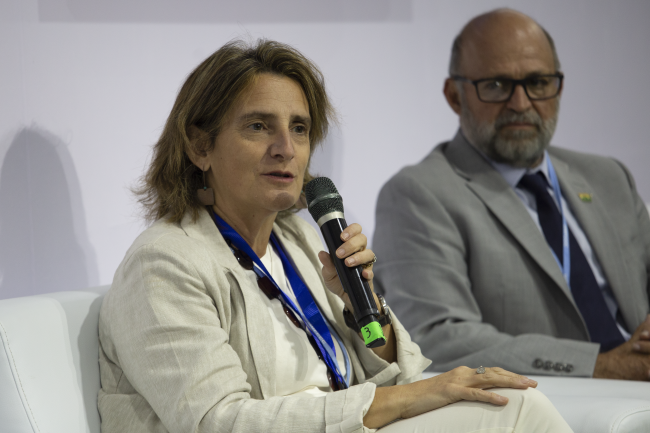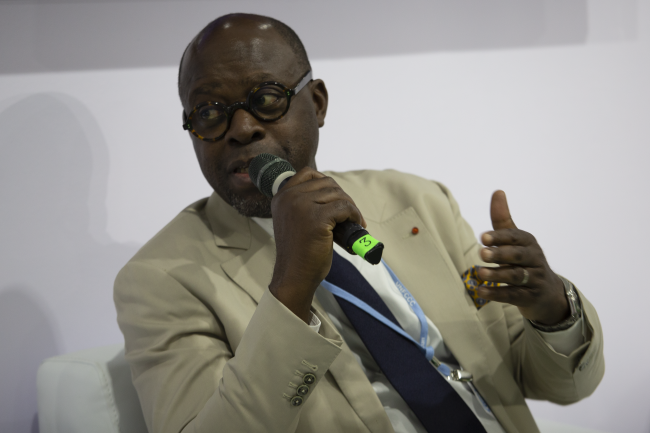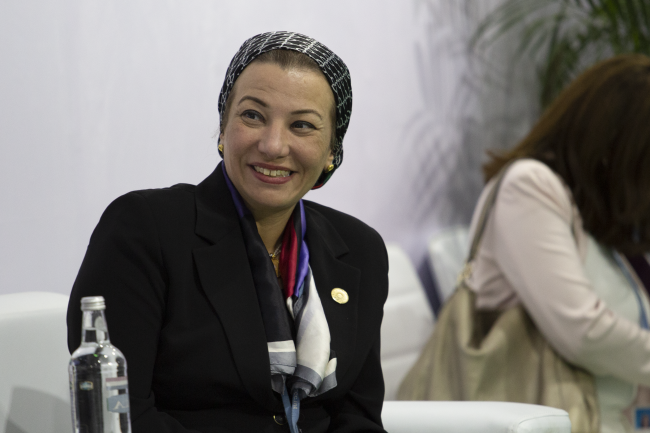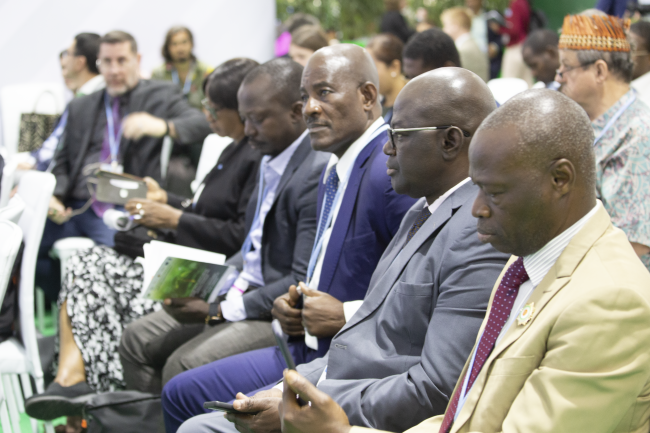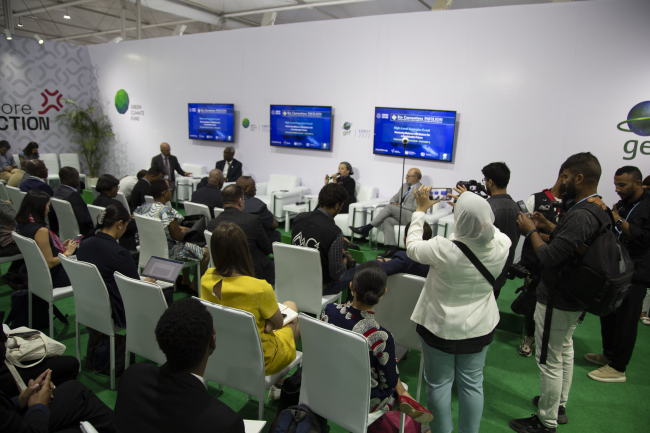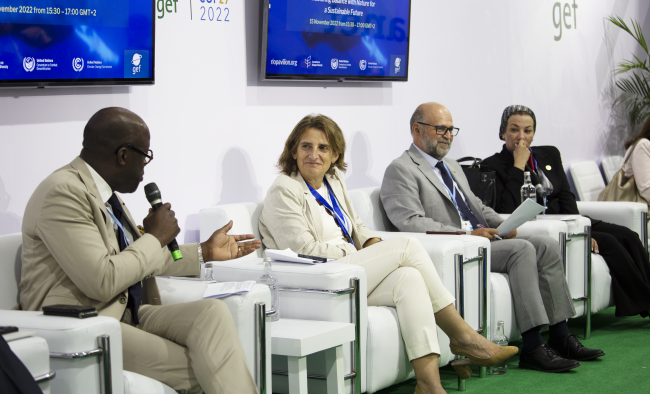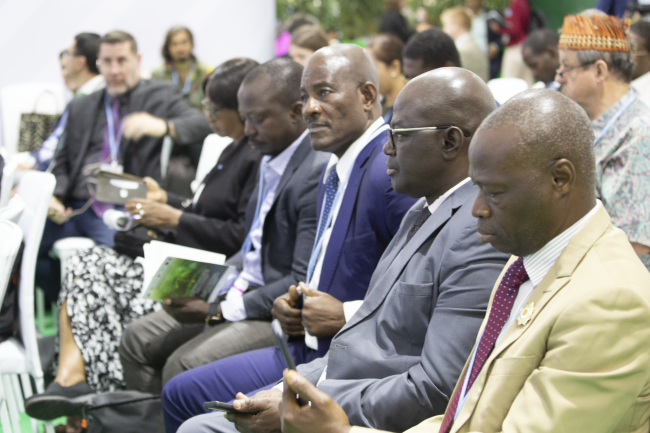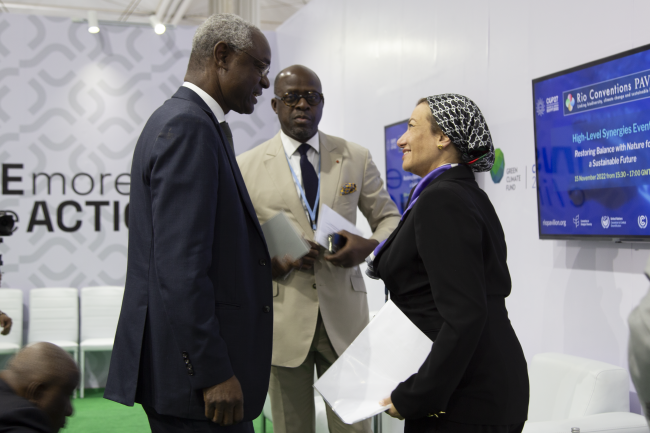The Rio Conventions – Restoring Balance with Nature for a Sustainable Future
Coordinated measures are needed to slow or reverse climate change, land degradation, and biodiversity loss, which can help safeguard human health and livelihoods, ensure food and water security, leave a sustainable legacy for future generations, and potentially provide economic returns of an estimated USD 125-140 trillion. Protecting and restoring nature can reduce emissions and increase carbon storage, providing more than one-third of the mitigation needed between now and 2030 to limit warming to 1.5°C. Thirty years after their adoption, the three Rio Conventions have made great strides in providing an interconnected approach to address climate change and ecosystem challenges. However, despite progress made, more must be done to meet the objectives of these Conventions and broader development goals.
This high-level synergies event highlighted, organised by the Rio Conventions Pavilion, explored the role of the Rio Conventions in helping countries achieve their development priorities for the benefit of present and future generations, as well as key action areas that must be advanced by 2030.
David Ainsworth, CBD Secretariat, moderated the event. In welcoming remarks, Ibrahim Thiaw, Executive Secretary, UNCCD, noted the planet’s population has reached eight billion people, according to the just-released World Population Prospects 2022 report. Given everyone has a right to a decent life, he asked how people’s increasing development needs can be reconciled with the need to reduce emissions, biodiversity loss, and land degradation. He emphasized incentivizing the creation of more coherent plans in this regard.
Carlos Manuel Rodriguez, CEO and Chair, GEF, discussed the importance of political coherence in implementing the objectives of the Rio Conventions. In 2022, he said the GEF has a record-breaking eighth replenishment of the GEF Trust Fund of USD 5.3 billion; however, he explained that amount is still insufficient to provide the necessary resources for the multitude of projects being implemented. He called for synergies in investments, and bringing together all players to address perverse subsidies and policies that continue to degrade the planet.
Elizabeth Maruma Mrema, Executive Secretary, CBD, in a video message, emphasized that issues on biodiversity, land degradation, and climate change are interlinked so actions to address them must also be linked. She highlighted the need for governments to engage with all stakeholders, including women, youth, academics, and sub-national and local governments. Mrema also recognized the need for governments to take coordinated approaches in integrating the objectives of the three conventions into national development plans. She pointed out that the GEF’s eighth replenishment represents an integral part of accomplishing the objectives of the Rio Conventions.
Teresa Ribera, Deputy Prime Minister and Minister for the Ecological Transition and Demographic Challenge, Spain, reiterated the need for political coherence in implementing the Rio Conventions and for science-based information to contribute to decision making. Thus, she called for increased dialogue between policymakers and scientists when designing and formulating policies. She also emphasized the need to make science-based information on climate change accessible to everyone.
Alain-Richard Donwahi, President, UNCCD COP 15, highlighted the creation of regional initiatives, such as the Saudi & Middle East Green Initiatives, where countries facing the same environmental problems come together to find solutions. Donwahi underscored that regional and inter-regional initiatives should also be established and implemented in Asia, South America, Europe, and Australia. He discussed the need to raise awareness about and sensitize people to environmental issues. In conclusion, he said political will is critical to implementation.
Yasmine Fouad, Minister of Environment, Egypt, and CBD COP 14 President, shared that implementing the Rio Conventions has been a challenge over the past three years because of the COVID-19 pandemic, which has only highlighted the disparity between the Global South and the Global North. Fouad called for the three Rio Convention Executive Secretaries to take a synergetic approach in working together to address biodiversity loss, land degradation, and climate change, and provide guidance on a global response, which requires ambitious transformative approaches. She said Sharm El-Sheikh represents a good start in creating a strong implementation agenda on biodiversity when nature-based solutions are included as part of the discussion.
In closing the event, Ainsworth reiterated the importance of bringing together different sectors and stakeholders to implement the Conventions, and expressed optimism over progress made since Glasgow.
This event took place at the GEF/Green Climate Fund Pavilion, which is hosting Rio Convention Pavilion events at COP 27.
Organizer: Rio Conventions Pavilion
Contact: David Ainsworth | david.ainsworth@un.org
For more information: http://www.riopavilion.org/
To receive free coverage of global environmental events delivered to your inbox, subscribe to the ENB Update newsletter.
